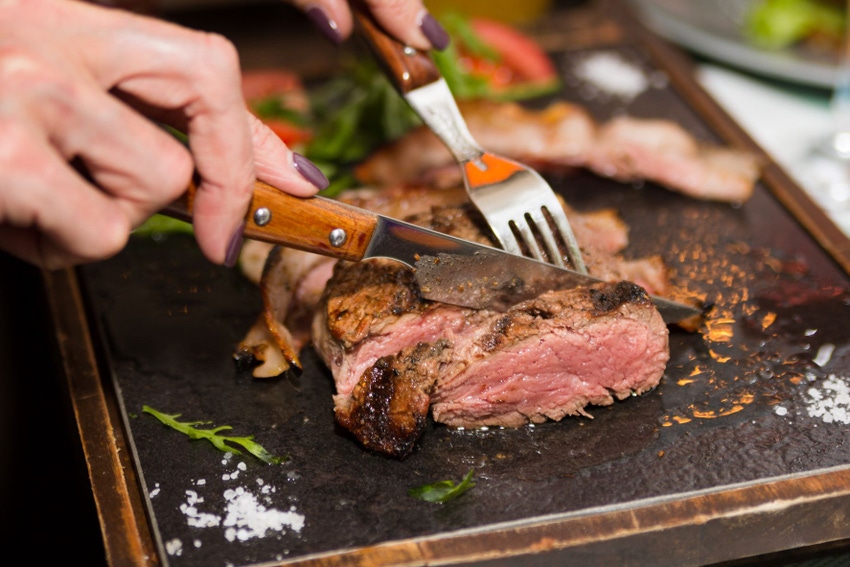Study hopes to answer why consumers will pay $75 for a steak
Miller is working with groups from Australia and Ireland to identify the genetic qualities of high-grade beef.
September 9, 2022

Why are consumers willing to pay high prices for steaks? A research project from Texas Tech University's Davis College of Agricultural Sciences and Natural Resources, in collaboration with groups in Ireland and Australia, is trying to answer that question.
The project started with a simple idea from a doctoral candidate, who wanted to know why consumers would pay $75 for a steak when much cheaper options were available. It has evolved into L GEN 2000, a collaborative genomics project funded by a $603,960 grant from the University of New England, that seeks to relate the genetic differences in the culinary quality of various beef cattle.
"We discovered the part of the brain stimulated when you have your best experience in life – first kiss, first love, marriage, children, whatever it is – gets turned on when you eat a high-quality piece of beef," said Markus Miller, a professor and the San Antonio Stock Show and Rodeo chair of meat science, food processing and preservation in the Department of Animal and Food Sciences. "Why would people want to eat beef when in every country on the planet, it's the most expensive protein? The reason is because of what it does to you physiologically. It makes you feel warm and fuzzy. You feel happy, you feel good about yourself. And food does that to everybody."
The L GEN 2000 project will collect data from consumers across three countries with different methods of raising beef cattle, compile that data and try to isolate the genes that give consumers the best dining experience.
In the United States, consumers in the test project will eat steaks from 100% grain-fed beef. The beef produced for the tests in Ireland will be 100% grass-fed and the beef in Australia will be a mixture of the two, with the goal being to find out if the different methods of raising beef cattle produce different genetics.
"This genomics project will look at beef in different production systems and relate it to the genome of the beef animal," Miller said. "It may be that we have the same genetics everywhere and there's no genetic difference, but we need to know. Understanding the differences, or lack of differences, allows us to know how to manage feeding and production. It will help us maximize the quality and healthfulness of beef in relation to all outputs like methane, carbon and water use."
Source: Texas Tech University, which is solely responsible for the information provided, and wholly owns the information. Informa Business Media and all its subsidiaries are not responsible for any of the content contained in this information asset.
You May Also Like
.png?width=300&auto=webp&quality=80&disable=upscale)


